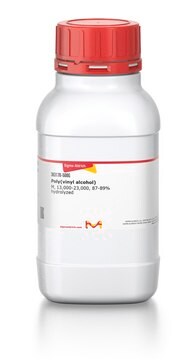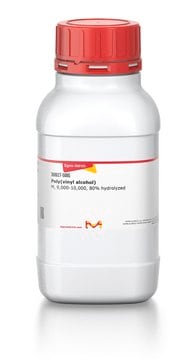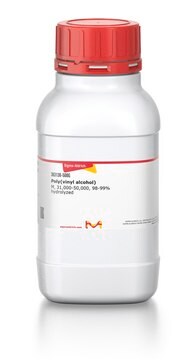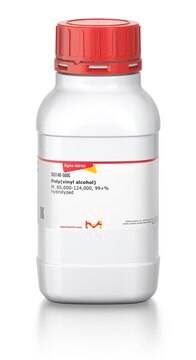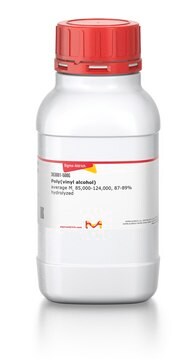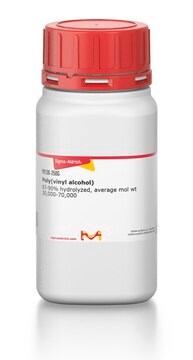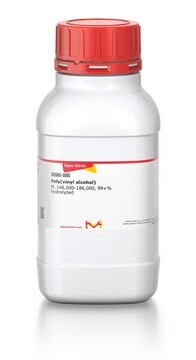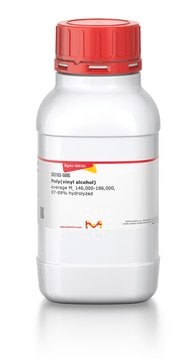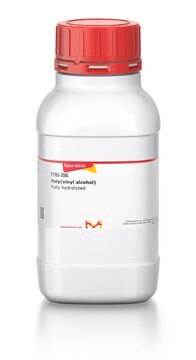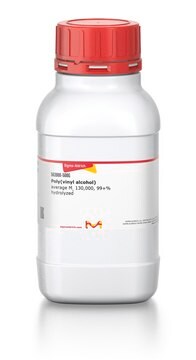This product is water soluble up to 20%. The material is expected to stay in solution with proper preparation and storage. General instructions are as follows:
1. Use unheated water
2. Add water to vessel and initiate agitation or stirring
3. Add desired amount of PVA, gradually, up to 20%
4. Heat solution while stirring to 85°C, hold for 30 minutes
To maintain the product in solution, do not store at temperatures lower that 15°C.
Solutions stored at temperatures higher than 24°C should include a biocidal agent.

